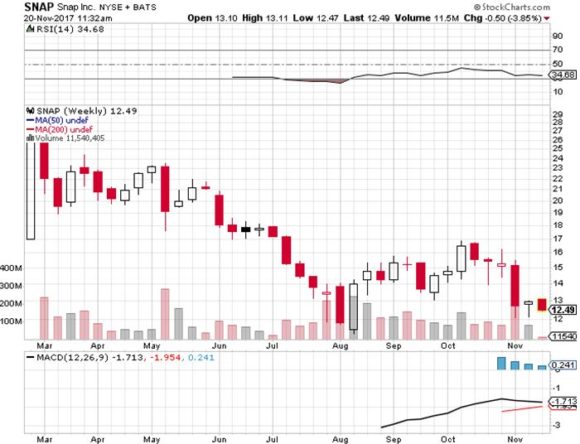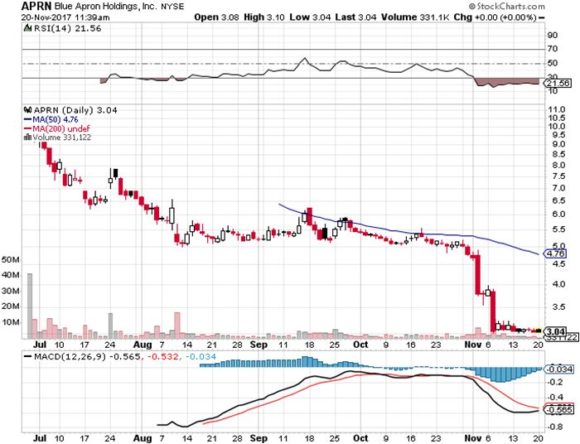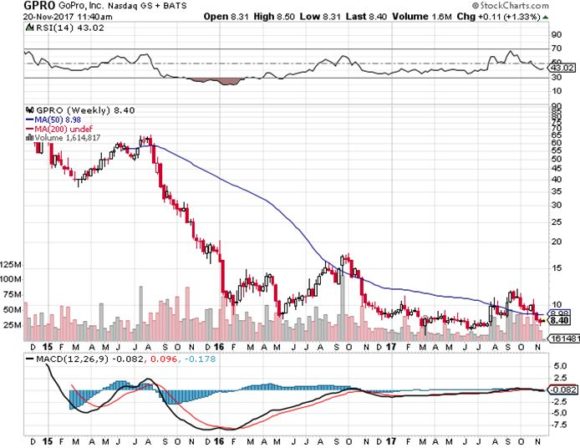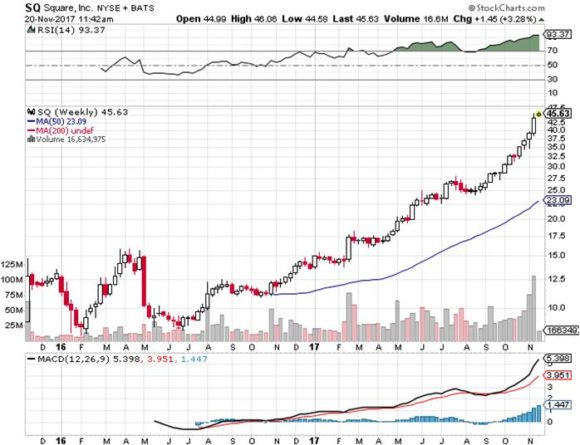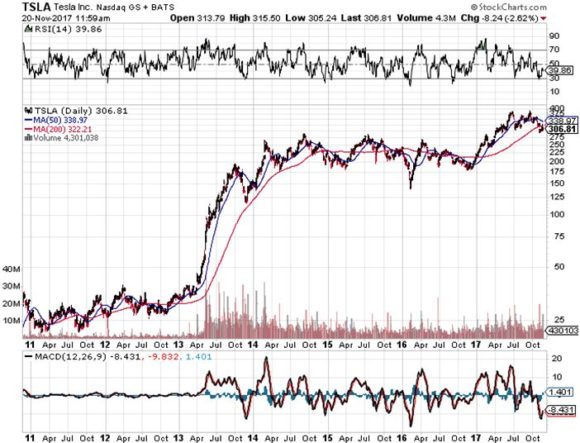Don't Let Those Unicorns Bite You In the Ass
With the stock market at all-time highs, the IPO engine is starting to rev up once again.
Hardly a day goes by without an investor asking me if they should take the latest high tech stock allocation being offered by their broker.
My answer is always the same: No, not with my money, not with your money, and not even with Donald Trump's money.
The reason is very simple.
Look at the track record of recent tech IPO's and what you find is nothing less than disastrous.
From the first day of trading for digital photo app maker (SNAP), the company that put those goofy dog ears on kids' photos, the shares have plunged 58%.
Blue Apron (APRN), whose delicious and well thought out door to door delivered meals I devour twice a week, saw their shares get food poisoning and puked on an incredible 75% in only seven months.
Action camera producer GoPro (GPRO) has shed an amazing 92% since its post IPO pop to $100.
Adding fuel to the fire is the fact that there horrific returns have been dished up with the tailwind of a hugely positive stock market, with the Dow Average up 35% over the past two years, and 40% with dividends.
I spoke to a senior venture capitalist the other day who you all know well, and what I learned was amazing.
There are 170 start-up "Unicorn" companies with a combined market capitalization of $600 billion. Most of these are located in the San Francisco Bay area.
They are accounting for an outsized portion of the profits of the US economy. Essentially, Silicon Valley is sucking up the best talent in the world and creating monster profits from whole cloth, much of which is spent locally.
There is nothing like watching history unfold on your doorstep.
And here is the problem.
Unicorns, by definition, are all privately held companies. Breathtaking profits are only shared among the founders, senior employees, and venture capitalists that took the leap of faith to invest during the firm's early days.
As for the rest of us, we can only benefit from the profits of publicly listed companies, whose earnings fell 3% last year.
So while VC investors are feasting on the hyper growth in the technology sector, the rest of us have to get by with leftovers.
In other words, the Unicorns are eating our lunch.
This wasn't a problem during the Dotcom boom of yore for the simple fact that almost no one made money back then.
That was the time of market share, the big idea, the creative business plan, endless potential, and "eyeballs," with profits coming somewhere down the road.
They never showed for most companies.
The only thing the public investor missed when the inevitable bust occurred 17 years ago was the horrific capital losses that followed.
BUT THIS TIME IT IS DIFFERENT!
Unicorns are now making serious money.
The largest, the ride sharing company Uber, is worth $68 billion according its latest fund raising round.
It is expected to earn $2.5 billion this year. That could rise to $4 billion as its international expansion unrolls, and ancillary business lines evolve, like same hour intra-city delivery services.
Guess what I passed on Interstate 80 the other day?
An Uber truck hauling a load it picked up at the last minute, thanks only to an online bidding system.
Unlike past VC cycles, Unicorns are staying private for far longer, and there are many more of them. It seems that managers and owners are trying to milk their investment for all they are worth before letting the public in.
If only when the companies are about to go low growth, or ex growth, and even ex profits that they are listed through an initial public offering on a public stock exchange, like the NYSE or NASDAQ.
That explains the recent diabolical performance of many recent IPO's. After the initial post IPO euphoria, Twitter (TWTR) collapsed 65%, while Alibaba (BABA) took a 54% nosedive. More than half of all the IPO's issued this year are underwater.
Remember, Wall Street is all about selling stocks, not buying them.
This is why I have been advising readers to avoid IPO's like the plague. If you apply for shares and get them, watch out below!
It has gotten to the point where many VC investors are demanding that unicorns quit being such hogs and milking their firms for all they are worth before unloading them.
They want their investments to go public so they can cash out and roll the profits into the next generation of technology investment. This constipation of capital is so serious that it is actually slowing the rate of technological development.
And it's always better to leave some profits for the next guy, lest the industry evolves into a gigantic pump and dump scheme. At least, that's what my late mentor, Barton Biggs, taught me.
The unicorns are taking more than just cash from the rest of the country.
There is now a wholesale brain drain under way whereby unicorns are seducing the best managers and programmers from across the country with the promise of lucrative stock options. These have the potential to appreciate several hundred-fold.
I have been brought in as a "supervising adult" at a couple of start ups, and it was an eye-opening experience.
While some coders are no doubt brilliant at punching in long strings of "0's" and "1's", apparently, they don't teach business ethics, accounting, tax law, or even manners at programming school.
You need to possess all of these skills to create a truly successful and enduring company worthy of the public's attention.
There is a possible happy ending to this fairy tale. As we approach the end of this economic cycle, which clearly has years to run, unicorns will start eyeing the EXIT doors more nervously. That means going public earlier, and at lower valuations.
And public company profits are set to improve in 2018.
And not every tech IPO is a disaster. Look at the chart for online credit card processor Square (SQ) which has rocketed an impressive 470% from its 2016 low.
My strategy towards these issues is very simple. Wait for prices to drop by half from the IPO prices, then take a look.
That's what I did with Tesla (TSLA). After it came public at $32 it cratered to $16.50.
Then I issued the Trade Alert to buy that became the stuff of online trade mentoring legends. (TSLA) shares eventually went ballistic to $394, up some 2,300%!
It's a strategy that seems to work.


